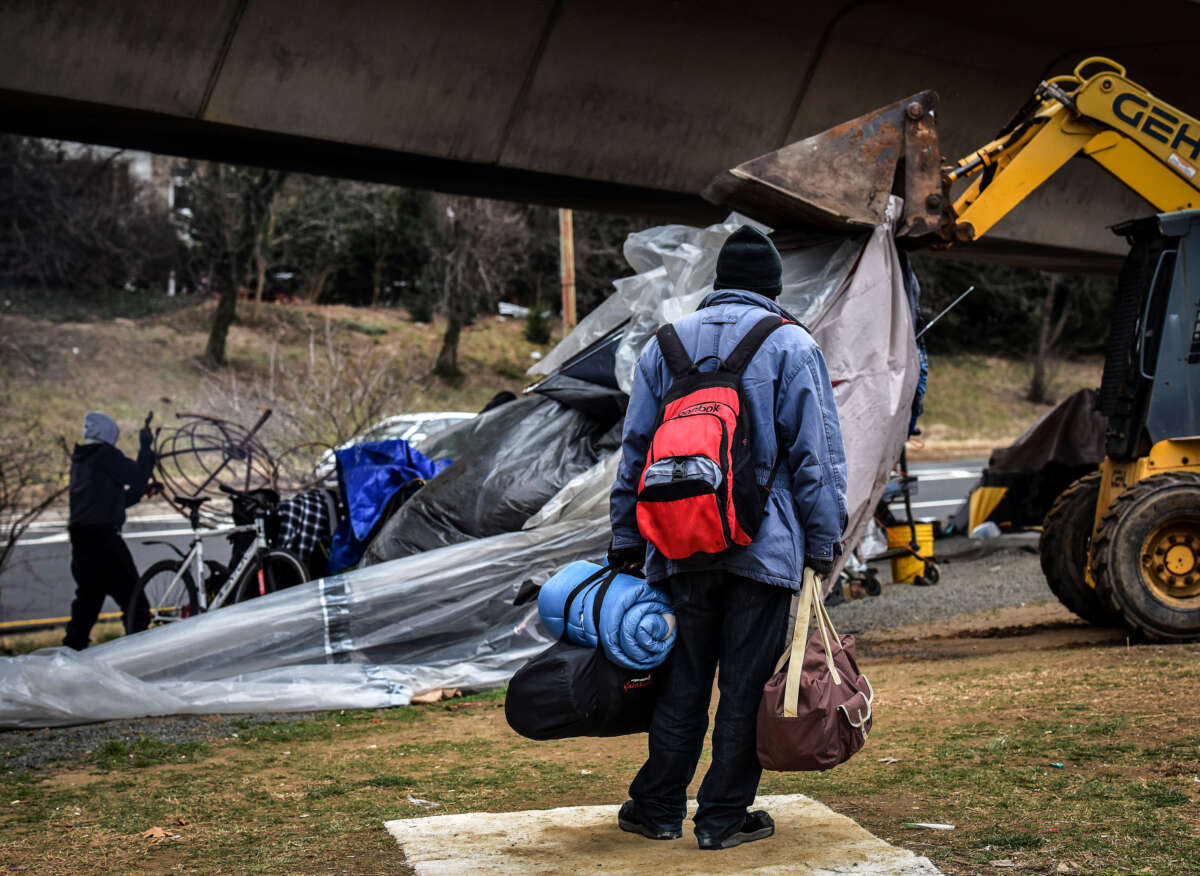New research, published by the Journal of the American Medical Association (JAMA), finds that police sweeps of homeless encampments have the potential to increase deaths among people who are unhoused by 25 percent by 2028.
On a single night in 2022, more than half a million people in the U.S. were unhoused, the research found, with LGBTQ youth, Black people and Indigenous people experiencing homelessness at disproportionate rates. Partially as a result of exorbitant housing prices and the U.S.’s often discriminatory housing market, the number of people experiencing unsheltered homelessness increased by 3 percent between 2020 and 2022.
Jurisdictions have responded to this epidemic — brought on in large part by corporate greed and the real estate lobby — by instituting camping bans, city ordinances that make it a crime for any person to shelter themselves from the elements while residing on public or private property, effectively criminalizing homelessness.
The National Homelessness Law Center (NHLC), the only national organization dedicated to using the U.S. legal system to end homelessness, reports that almost every state has at least one law restricting homeless people on the books, with four states restricting camping in public statewide and more than 100 jurisdictions criminalizing homeless encampments.
Punitive policies like homeless sweeps aren’t just cruel and ineffective — they also actively worsen the crisis, says Eric Tars, legal director for the NHLC. When homelessness is effectively criminalized, unhoused people are burdened by arrests, jail time and criminal records, making it even more difficult for them to access housing, social services and employment.
Homeless sweeps also threaten unhoused people’s health, wellbeing, and connections to care; compromise personal safety and civic trust; and undermine paths to housing and financial stability, according to the National Health Care for the Homeless Council. During encampment sweeps, police often seize, damage or destroy items needed for survival, such as tents. These sweeps — and the displacement that follows — are traumatizing for people who are unsheltered, often exacerbating already-existing mental conditions and pushing residents into more dangerous, isolated environments. Police also frequently destroy life-saving medications and medical equipment, such as the overdose protection drug naloxone (Narcan), effectively contributing to overdose deaths.
“Stigma against drug use pushes people into isolation, and that’s a recipe for an unwitnessed overdose,” said Yoela Tepper, Substance Use Specialist at The Night Ministry in Chicago. “When we take away encampments, we take away a community that can serve as a first line of defense against a potential death when an overdose happens.”
More than 30 percent of people who are experiencing homelessness also have a substance use disorder. Continual involuntary displacement through homeless encampment sweeps contributes to a 15 to 24 percent increase in deaths among unhoused people who use drugs.
“Involuntary displacement of people experiencing homelessness may substantially increase drug-related morbidity and mortality,” the study explains. “These findings have implications for the practice of involuntary displacement, as well as policies such as access to housing and supportive services, that could mitigate these harms.”
“[Sweeps,] we predict, will contribute up to 25% of the deaths among this population over a 10-year period,” Dr. Joshua Barocas, principal investigator of the study and infectious disease doctor and associate professor at the University of Colorado Anschutz Medical Campus, told Denverite. “To put that a different way, it means our states and our cities are literally killing people with this.”
Join us in defending the truth before it’s too late
The future of independent journalism is uncertain, and the consequences of losing it are too grave to ignore. To ensure Truthout remains safe, strong, and free, we need to raise $17,000 by midnight tonight. Every dollar raised goes directly toward the costs of producing news you can trust.
Please give what you can — because by supporting us with a tax-deductible donation, you’re not just preserving a source of news, you’re helping to safeguard what’s left of our democracy.
